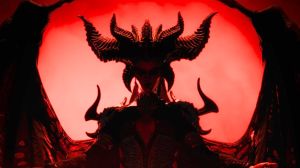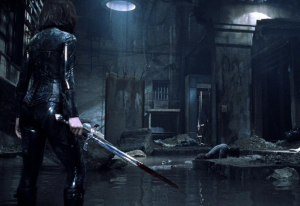The rise, fall, rise, fall, and general turmoil surrounding recent Blizzard decisions is unfortunate, but nothing new for the company, which has a history of swinging big and occasionally striking out. Before their success with Overwatch—and rocky but consistent support of Overwatch 2—Blizzard was known for a few games, one of the most prominent being World of Warcraft. After its release and positive reception in 2004, Blizzard execs began looking for their next big project.
Videos by ComicBook.com
Coming off of WoW‘s success and fueled by the industry race to make the next MMORPG that would “kill” WoW, Blizzard gathered its best and brightest to start drafting one of their own: a project code-named Titan. Titan was to be the next big thing for Blizzard, a game that they would be able to list next to StarCraft and Warcraft in terms of both scope and success. Unfortunately, it was also a project that, despite years of work, never saw the light of day.
Blizzard Set Out to Make Their Own “WoW-Killer” With No Real Direction

Development on Titan began sometime in 2007, though no official date for the project’s foundation has been released. It was headed up by Blizzard vice-president Rob Pardo and staffed by many of the best and brightest the company had to offer, including Chris Metzen, Justin Thavirat, and Shane Dabiri, all of whom had been working and succeeding at Blizzard for some time before joining the Titan team. With a star-studded team, all they needed to do was get to work.
And work they did indeed. Day in and day out, the various teams working on Titan met to flesh out the game’s story and setting; they eventually decided on a near-future Earth that featured a society much like today’s, but with a sci-fi and almost superhero-like twist. The player would choose from one of many classes available and play a mild-mannered citizen by day—going to work, running a home, raising a family—and then at night, the gameplay would change.
From life sim to shooter, the nighttime gameplay would feature PvP shooter combat, tasking players with defeating others to achieve objectives, using the skills and abilities of the class they’d chosen. The Ranger class featured a long-range rifle, the Jumper class allowed players to teleport short distances, and more and more classes filled out the roster. Between the daytime gameplay—which seemed like Blizzard’s take on The Sims—and the nighttime gameplay—which played more like MMO dungeons and team-shooters—the Titan team had bitten off quite a bit.
Project Titan Spent Seven Years in Development Hell
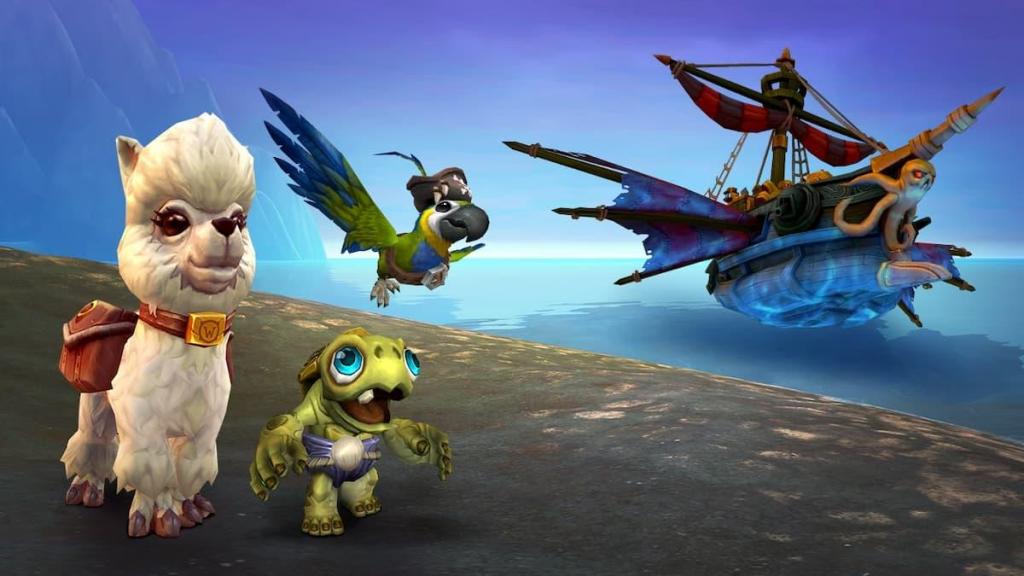
Between the huge scope of the project and the size of the team itself, which was swelling by the day to keep up with the project’s taskload, the Titan team struggled with clarity of vision from the outset. It’s rumored that this was in part thanks to lead developer Rob Pardo’s relatively hands-off approach, wherein he would have no input for weeks, only to shut down ideas with no offered alternative or constructive feedback.
It was difficult for the team to bring together a clear design or settle on a gameplay loop despite internal feedback that the parts of the game that were “playable” were fun. They weren’t textured or polished, but internal reports from anonymous employees suggested that the game had legs—if only it could get to the races.
Unfortunately, Pardo’s lack of strong direction meant the team was complacent and unable to actually gather together the two halves of the game; the daytime gameplay and nighttime gameplay felt good separately, but when played in sequence, felt disjointed and cobbled-together. This lack of synergy between the two core pieces of what made the game unique, in combination with a staggering lack of true inspiration for the team to follow, led to the game’s internal cancellation in 2013 and official cancellation in 2014.
Titan Was Cancelled, But Not Scrapped Completely
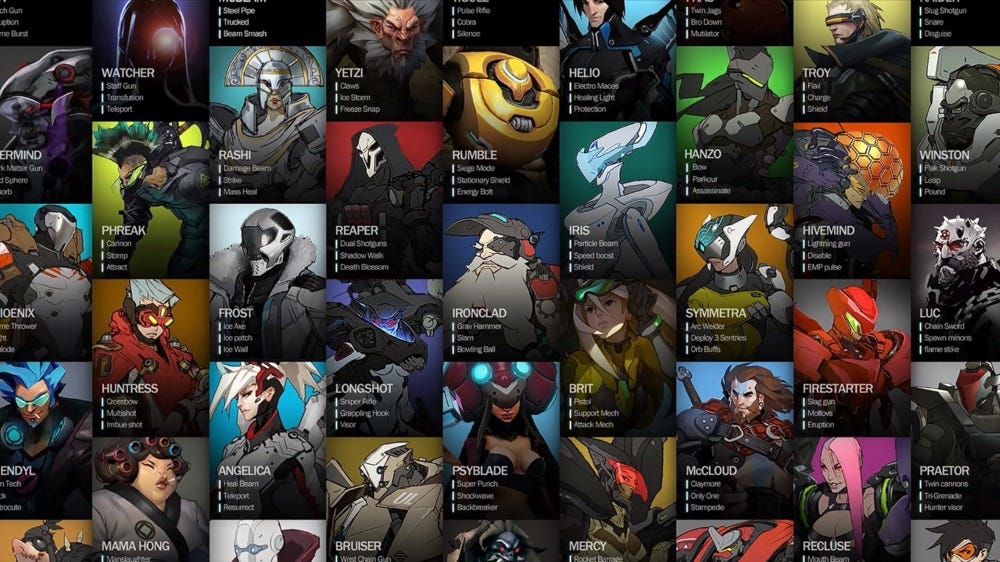
With Titan’s cancellation, it looked like almost seven years of hard work would be going down the drain, stacks of digital art and game concepts lost to time and destined to be forgotten in some Blizzard archive. However, Blizzard was committed to salvaging what they could, and this is how many of the heroes from Overwatch were born. Vestiges of the Titan Jumper class still exist in Tracer, and from Ana to Widowmaker, the Ranger class may have inspired any number of Overwatch‘s sniper heroes.
Many new Overwatch heroes continue to be inspired by Titan concepts, including Iris (Echo), Phreak (Junker Queen and Hazard), and likely more to come. Alongside the heroes used, some of the map and most of the setting concepts seem to have made it into the game as well, with the “2070’s future Earth” setting permeating every facet of Overwatch‘s lore. It’s reassuring that all the hard work that went into developing Titan isn’t entirely going to waste, though there’s no telling if or when Blizzard might step back up to the MMORPG plate.
Pressure to Make the Next World of Warcraft Has Frozen Blizzard in Its Tracks
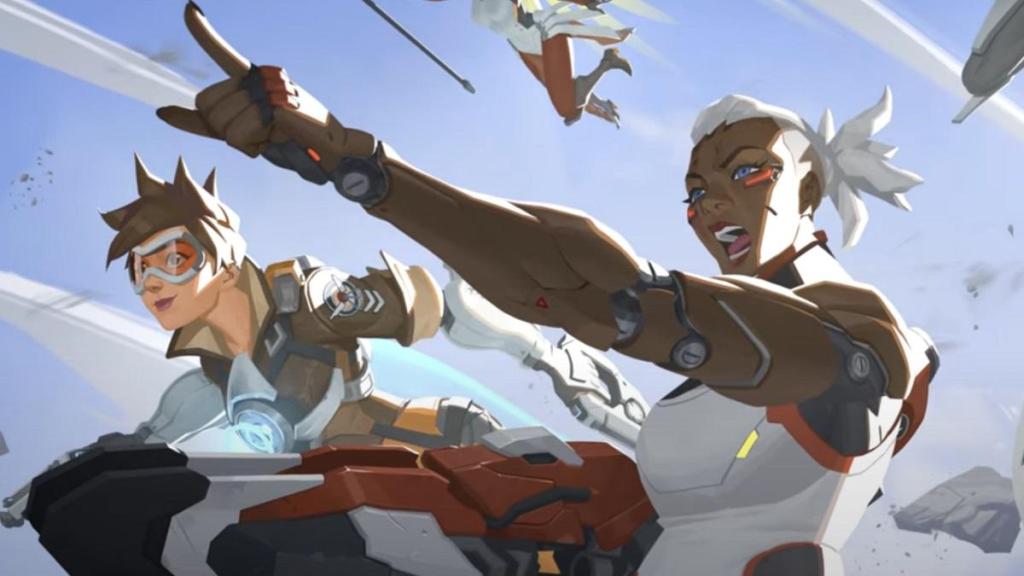
With Overwatch‘s release, success, and subsequent turmoil in the years following, it looks like they’ve simply been too busy to undergo another ordeal like the Titan project ended up being. It’s unlikely that Blizzard has given up on MMORPG development entirely, but there have been no whispers about a new Blizzard project in the genre since Titan got shut down. Between Overwatch 2‘s dramatic announcement, delays, and final release, there has been little time for the Activision Blizzard upper management to really buckle down on such an ambitious project as Titan was, but from the same company that published WoW, anything less than an industry-defining MMORPG might be deemed a disappointment.
Whether Blizzard has shied away from making their WoW-killer over fear of the scope or just general lack of resources, it’s true that an entirely new Blizzard property might not be welcomed right now in the industry. New games from big studios are criticized heavily, and Blizzard might be more than most, considering their company culture failures that have come to light in the past few years. Though a new Blizzard MMORPG isn’t likely to be coming down the pipeline anytime soon, the glimpses of Project Titan that can be found across the web are interesting enough for many to be disappointed they never got to see it for themselves.

